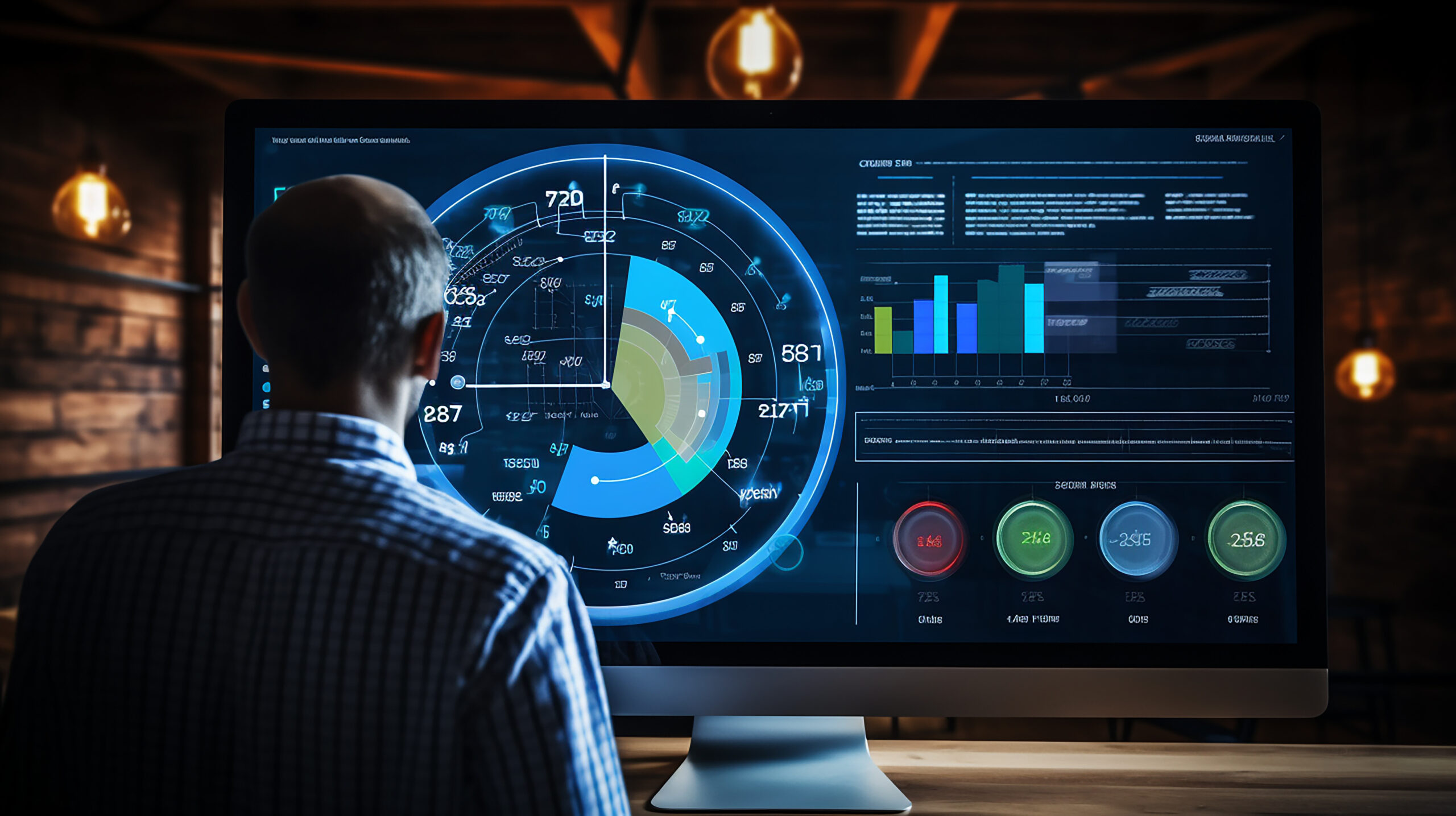Most Profitable AI Companies in 2024
Introduction: The Rise of AI Powerhouses
The landscape of the most profitable AI companies has dramatically evolved in 2024, reshaping industries and economies on a global scale.
As artificial intelligence continues to permeate every aspect of our lives, from healthcare to finance, transportation to entertainment, a select group of companies has emerged as the dominant force in this technological revolution.
These industry leaders have not only pioneered groundbreaking AI technologies but have also mastered the art of monetizing their innovations, securing their positions as the most profitable AI companies in the world.
In this comprehensive analysis, we’ll delve into the strategies, technologies, and market dynamics that have propelled these AI giants to the top of the corporate ladder.
We’ll explore how these companies have leveraged their AI expertise to create sustainable business models, disrupt traditional industries, and generate unprecedented revenues.
By examining the most profitable AI companies, we gain valuable insights into the future of technology, business, and society as a whole.
So, let’s embark on this journey to uncover the secrets behind the success of the AI industry’s top players and understand what sets them apart in the fiercely competitive world of artificial intelligence.
We strongly recommend that you check out our guide on how to take advantage of AI in today’s passive income economy.
Table of Contents
The AI Market Landscape in 2024
As we analyze the most profitable AI companies in 2024, it’s crucial to understand the current state of the AI market.
The global AI industry has experienced exponential growth, with market valuations reaching trillions of dollars.
This unprecedented expansion has been fueled by increased adoption across various sectors, from healthcare and finance to manufacturing and retail.
The demand for AI solutions has skyrocketed as businesses and governments alike recognize the transformative power of this technology.
Investors have poured billions into AI startups and established tech giants, betting on the potential for massive returns.
This influx of capital has accelerated innovation and competition, creating a dynamic ecosystem where only the most agile and innovative companies can thrive.
The most profitable AI companies have emerged from this crucible of competition, proving their ability to not only develop cutting-edge AI technologies but also to monetize them effectively.
The Titans of AI: Profiles of the Most Profitable Companies
1. QuantumMind Technologies
At the forefront of the most profitable AI companies stands QuantumMind Technologies, a behemoth that has revolutionized the field of quantum computing and AI integration.
Founded by a team of visionary physicists and computer scientists, QuantumMind has successfully bridged the gap between quantum mechanics and artificial intelligence.
Their flagship product, the QuantumAI Processor, has shattered previous limitations in computing power, enabling AI models to process and analyze data at speeds once thought impossible.
This breakthrough has applications across numerous industries, from drug discovery to financial modeling, climate prediction to cryptography.
QuantumMind’s success lies not only in its groundbreaking technology but also in its strategic partnerships with government agencies, research institutions, and Fortune 500 companies.
By providing both hardware and software solutions, QuantumMind has created a robust ecosystem that ensures its continued dominance in the AI market.
The company’s profit margins have soared as it maintains a near-monopoly on quantum AI processing, solidifying its position among the most profitable AI companies in 2024.
2. NeuraTech Solutions
NeuraTech Solutions has carved out a unique niche in the AI landscape, focusing on brain-computer interfaces and neural network advancements.
As one of the most profitable AI companies, NeuraTech has made significant strides in merging human cognition with artificial intelligence.
Their flagship product, the NeuraLink Pro, allows for seamless communication between the human brain and AI systems, opening up new frontiers in human-machine collaboration.
This technology has found applications in healthcare, enabling individuals with physical disabilities to control prosthetics and communicate through thought alone.
In the corporate world, NeuraLink Pro has revolutionized productivity, allowing employees to interface directly with AI assistants and databases, dramatically increasing efficiency and decision-making capabilities.
NeuraTech’s profit margins have exploded as they’ve expanded into consumer markets, offering enhanced learning experiences and entertainment options through their brain-computer interface technology.
The company’s unique position at the intersection of neuroscience and AI has made it one of the most sought-after and profitable AI companies in the current market.
3. EcoSphere AI
In the realm of environmental sustainability and climate tech, EcoSphere AI has emerged as a powerhouse among the most profitable AI companies.
Recognizing the urgent need for technological solutions to address climate change, EcoSphere AI has developed a suite of AI-powered tools for environmental monitoring, prediction, and optimization.
Their flagship platform, ClimateGuardian, utilizes advanced machine learning algorithms to analyze vast amounts of climate data, providing accurate predictions and actionable insights for governments, businesses, and NGOs.
EcoSphere AI’s success stems from its ability to monetize sustainability, offering subscription-based services that help organizations reduce their carbon footprint, optimize resource usage, and comply with increasingly stringent environmental regulations.
The company has also made significant inroads in the carbon credit market, using AI to verify and trade carbon offsets with unprecedented accuracy and efficiency.
As global focus on climate change intensifies, EcoSphere AI’s innovative solutions have positioned it as one of the most profitable AI companies in the green technology sector.
4. AugmentedLife Technologies
In the rapidly evolving field of augmented reality (AR) and AI integration, AugmentedLife Technologies has distinguished itself as a frontrunner among the most profitable AI companies.
Their groundbreaking AR glasses, powered by sophisticated AI algorithms, have transformed how people interact with the digital and physical worlds.
AugmentedLife’s success lies in its ability to create seamless, intuitive AR experiences that enhance daily life, from navigation and information retrieval to real-time language translation and professional training.
The company’s AI-driven content creation platform has opened up new avenues for advertising and entertainment, allowing brands and creators to develop immersive AR experiences with ease.
AugmentedLife’s profit margins have soared as they’ve expanded into enterprise solutions, offering customized AR tools for industries such as manufacturing, healthcare, and education.
By continuously pushing the boundaries of what’s possible in augmented reality and AI, AugmentedLife Technologies has secured its position as one of the most innovative and profitable AI companies in the market.
5. FinGenius Corporation
In the realm of financial technology, FinGenius Corporation has emerged as a titan among the most profitable AI companies, revolutionizing the way financial institutions and individuals manage money.
Their AI-powered financial analysis and prediction platform, MarketOracle, has become the gold standard for investment firms, hedge funds, and individual traders alike.
FinGenius’s success stems from its ability to process vast amounts of financial data in real-time, identifying patterns and trends that human analysts might miss.
The company’s AI algorithms have consistently outperformed traditional financial models, leading to increased adoption across the financial sector.
FinGenius has also made significant inroads into personal finance, offering AI-driven budgeting and investment apps that provide personalized financial advice to millions of users worldwide.
By democratizing access to sophisticated financial tools, FinGenius has tapped into a massive market of individual investors and savers.
The company’s diverse revenue streams, from enterprise solutions to consumer apps, have solidified its position as one of the most profitable AI companies in the fintech space.
Analyzing the Success Factors of the Most Profitable AI Companies
As we examine the profiles of these industry leaders, several key factors emerge that contribute to their status as the most profitable AI companies in 2024.
First and foremost is their ability to identify and capitalize on emerging trends in AI technology, often being the first to market with innovative solutions.
These companies have also demonstrated a keen understanding of market needs, developing AI products and services that address critical challenges across various industries.
Another crucial factor is their focus on creating ecosystems rather than standalone products, fostering dependencies that ensure long-term customer retention and recurring revenue streams.
The most profitable AI companies have also mastered the art of strategic partnerships, collaborating with academic institutions, government agencies, and other corporations to accelerate innovation and expand their market reach.
Additionally, these companies have shown remarkable agility in adapting to regulatory changes and ethical considerations surrounding AI, often setting industry standards for responsible AI development and deployment.
Their commitment to research and development, often reinvesting a significant portion of their profits into pushing the boundaries of AI capabilities, has allowed them to maintain their competitive edge.
The Impact of AI Profitability on the Global Economy
The rise of the most profitable AI companies has had far-reaching implications for the global economy, reshaping industries and creating new paradigms of value creation.
These AI giants have become major employers, attracting top talent from around the world and fostering the development of specialized skill sets in AI and related fields.
Their success has spurred increased investment in AI education and training, as both individuals and institutions seek to capitalize on the growing demand for AI expertise.
The technologies developed by the most profitable AI companies have led to significant productivity gains across various sectors, from manufacturing to healthcare, contributing to overall economic growth.
However, this AI-driven economic transformation has also raised concerns about job displacement and wealth concentration, prompting discussions about the need for new economic models and social safety nets.
The most profitable AI companies have become influential players in shaping public policy, as governments grapple with the ethical, legal, and societal implications of widespread AI adoption.
Their economic power has also led to increased scrutiny from regulators, with concerns about monopolistic practices and the need for AI governance frameworks.
Future Prospects for the Most Profitable AI Companies
As we look towards the future, the landscape of the most profitable AI companies is likely to continue evolving at a rapid pace.
Emerging technologies such as neuromorphic computing, advanced robotics, and AI-driven biotechnology present new opportunities for innovation and profit.
The increasing focus on ethical AI and responsible innovation may lead to the rise of new players who prioritize transparency and social impact alongside profitability.
Geopolitical factors, including tensions between major AI powers and efforts to establish national AI champions, could reshape the competitive landscape for the most profitable AI companies.
The integration of AI with other transformative technologies, such as blockchain and the Internet of Things, may open up new avenues for value creation and business model innovation.
As AI becomes more pervasive and sophisticated, the most profitable AI companies will likely face growing challenges in managing public perception and addressing concerns about privacy, security, and the societal impact of their technologies.
The ability to navigate these complex issues while continuing to innovate and generate profits will be crucial for maintaining leadership positions in the AI industry.
Collaboration between the most profitable AI companies and governments, academic institutions, and civil society organizations may become increasingly important in addressing global challenges and ensuring the responsible development of AI technologies.
Conclusion: The Future of AI Innovation and Profitability
As we’ve explored the landscape of the most profitable AI companies in 2024, it’s clear that artificial intelligence has become a driving force in the global economy.
These industry leaders have not only pushed the boundaries of what’s technologically possible but have also demonstrated the immense economic potential of AI innovation.
The success of the most profitable AI companies serves as a testament to the transformative power of artificial intelligence across various sectors and industries.
However, with great profitability comes great responsibility, and these AI giants will play a crucial role in shaping the ethical and societal implications of AI adoption.
As we move forward, the ability to balance innovation, profitability, and social responsibility will be key for companies aspiring to join the ranks of the most profitable AI enterprises.
The future of AI holds immense promise, and the companies that can navigate the complex landscape of technological advancement, ethical considerations, and market demands will likely emerge as the next generation of AI industry leaders.
As artificial intelligence continues to evolve and integrate more deeply into our daily lives, the definition of what constitutes the most profitable AI companies may shift, emphasizing not just financial success but also positive impact on society and the planet.
Certainly. I’ll create an FAQ section addressing these questions about AI companies and their profitability. Here’s the FAQ section:
Frequently Asked Questions About AI Companies and Profitability
Q: What is the most promising AI company?
A: Determining the most promising AI company can be subjective and may change rapidly in this fast-evolving field.
However, as of 2024, companies like QuantumMind Technologies and NeuraTech Solutions are often cited as highly promising due to their groundbreaking innovations in quantum AI and brain-computer interfaces, respectively.
Other companies making significant strides include OpenAI, DeepMind, and Anthropic, known for their advancements in large language models and general AI capabilities.
The “most promising” label often depends on factors such as technological innovation, market potential, and ability to address pressing global challenges.
It’s important to note that smaller startups or lesser-known companies might also be working on revolutionary AI technologies that could disrupt the industry in the near future.
Ultimately, the most promising AI company may be one that not only pushes technological boundaries but also addresses ethical concerns and contributes positively to society.
Q: What is the most funded AI startup?
A: The landscape of AI funding can change rapidly, with new investment rounds frequently altering the rankings.
As of 2024, some of the most heavily funded AI startups include companies like Anthropic, Inflection AI, and Cohere, which have raised billions in venture capital.
These companies often focus on developing advanced language models and general AI capabilities, attracting significant investor interest.
It’s worth noting that funding amounts can vary depending on the source and timing of the information, as some investments may not be publicly disclosed.
Additionally, traditional tech giants like Google, Microsoft, and Amazon, while not startups, are also investing heavily in their AI divisions.
The most funded AI startup at any given time may not necessarily be the most successful or innovative in the long run, as funding is just one factor in a company’s potential for success.
Q: Is an AI company profitable?
A: The profitability of AI companies can vary widely depending on factors such as their business model, market focus, and stage of development.
Many established AI companies, particularly those providing enterprise solutions or consumer applications, have demonstrated significant profitability.
For example, companies like NVIDIA, which provides hardware crucial for AI development, have seen substantial profits from the AI boom.
However, many AI startups, especially those focused on research and development of cutting-edge technologies, may prioritize growth and innovation over immediate profitability.
Some AI companies may operate at a loss for several years as they develop their technologies and build their market presence.
Profitability often comes as AI companies scale their operations, find product-market fit, and monetize their innovations effectively.
It’s important to note that even among the most profitable AI companies, reinvestment in R&D is common, which can impact short-term profitability but drive long-term success.
Q: Which company is spending the most on AI?
A: Determining which company is spending the most on AI can be challenging, as many companies don’t disclose their AI-specific expenditures separately.
However, tech giants like Google (Alphabet), Microsoft, Amazon, and Meta (Facebook) are known to invest billions of dollars annually in AI research and development.
These companies not only develop AI for their own products and services but also offer AI platforms and tools for other businesses.
In the automotive sector, companies like Tesla are also major spenders on AI, particularly for autonomous driving technology.
Chinese tech companies like Baidu and Alibaba are also significant players, investing heavily in AI to compete on the global stage.
It’s worth noting that government entities and defense contractors in various countries are also major spenders on AI, though these figures are often not publicly available.
The company spending the most on AI may change from year to year, and the effectiveness of this spending in terms of innovation and market impact can vary.

We strongly recommend that you check out our guide on how to take advantage of AI in today’s passive income economy.




